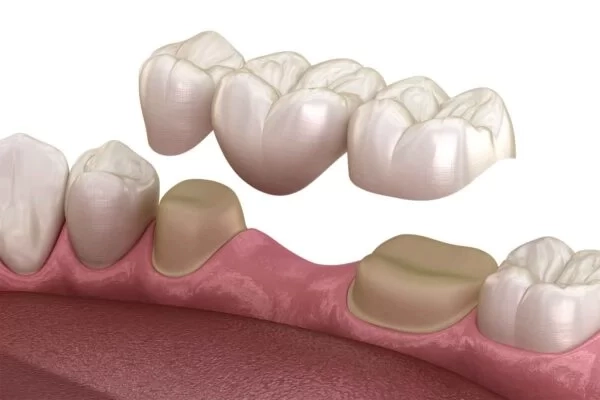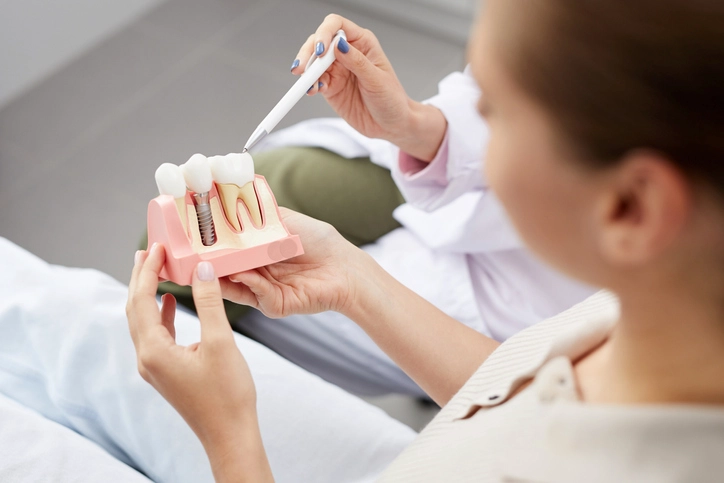Your teeth tell a story—one you might not even realize you’re sharing. To a general dentist, every stain, crack, or bit of wear is a clue about your habits, health, and even your daily routine. That little chip in your front tooth? Could be from grinding at night. Those receding gums? Maybe a sign of aggressive brushing or something deeper, like gum disease. Even the way your enamel wears down can reveal if you’re a stress-clencher or a nail-biter.
While you might see just another dental check-up, your dentist sees a puzzle, piecing together details about your overall health, diet, and lifestyle just by looking inside your mouth. It’s not just about cavities and cleanings—it’s a glimpse into your body’s bigger picture. The next time you sit in that chair, you might be surprised by what your teeth are saying.
How can a general dentist detect hidden health issues through your teeth?
A general dentist is trained to recognize early signs of various health issues by examining teeth and gums. Here’s how they can detect hidden health problems:
- Signs of Diabetes: Gum disease, such as gum recession or chronic bad breath, is often one of the first indicators of undiagnosed or poorly managed diabetes. A dentist can also notice dry mouth or slow healing of oral tissues, which is common in diabetic patients.
- Heart Disease: Infected gums and untreated periodontal disease are linked to an increased risk of heart disease. A dentist can identify gum inflammation or other oral issues that may suggest a higher likelihood of cardiovascular problems.
- Nutritional Deficiencies: Changes in the color or texture of your gums, teeth, or tongue can signal a nutritional deficiency, such as vitamin C (scurvy) or calcium deficiency. A dentist can detect these issues early, helping to guide dietary improvements.
- Stress and Bruxism (Teeth Grinding): Teeth that show signs of excessive wear, fractures, or chips may indicate bruxism, which is often caused by stress or anxiety. A dentist can discuss treatment options, such as mouthguards, to protect the teeth from further damage.
- Osteoporosis: The condition of the jawbone and teeth can indicate early signs of osteoporosis. If the bone structure supporting the teeth shows signs of weakening, it may suggest osteoporosis-related bone loss.
Through routine check-ups and careful observation, a general dentist can spot these health concerns early, often before symptoms become obvious, leading to timely referrals and preventive care.
What do dentists look for during a routine dental exam?
Dentists thoroughly evaluate your oral health during a routine dental exam to detect potential issues before they become serious. Here’s what they typically look for:
- Tooth Decay: Dentists examine each tooth for signs of cavities, checking for dark spots, soft spots, or visible decay. X-rays may also be used to detect decay between teeth or beneath fillings.
- Gum Disease (Periodontal Disease): They check for gum inflammation, bleeding, or recession, which are signs of gum disease. Dentists measure the depth of the spaces between your gums and teeth (called pockets) to determine the health of the supporting bone structure.
- Oral Cancer: Dentists inspect the soft tissues in your mouth, including your cheeks, gums, and tongue, for any unusual lumps, sores, or lesions that could indicate oral cancer.
- Bite and Jaw Alignment: They assess your bite to ensure the upper and lower teeth come together correctly. Any misalignment or signs of jaw issues, like TMJ (temporomandibular joint) problems, are noted.
- Tooth Wear and Fractures: Dentists look for signs of tooth wear, such as grinding or clenching, and check for chips, cracks, or fractures that could cause discomfort or lead to further damage.
- Hygiene and Plaque Buildup: They check for plaque or tartar buildup along the gumline and, if necessary, may provide a professional cleaning.
By looking for these issues, dentists can diagnose problems early, helping prevent more serious dental and overall health issues.
How do your teeth reveal signs of overall health problems?
Your teeth can reveal important signs of overall health problems, as they often reflect underlying conditions in the body. Here are some ways your teeth can indicate broader health concerns:
- Gum Disease and Heart Health: Gum disease (periodontitis) is linked to an increased risk of heart disease. Inflammation in the gums can cause bacteria to enter the bloodstream, leading to plaque buildup in the arteries and increasing the risk of heart attacks and strokes.
- Dry Mouth and Diabetes: A persistent dry mouth can indicate diabetes. High blood sugar levels can affect the salivary glands, leading to dry mouth, tooth decay, and gum disease.
- Tooth Loss and Osteoporosis: Loss of bone density in the jaw can cause teeth to loosen or fall out. This is commonly seen in individuals with osteoporosis, where weakened bones affect both the jawbone and tooth stability.
- Discolored Teeth and Nutritional Deficiencies: Yellowing or staining teeth can indicate poor diet or nutritional deficiencies, such as a lack of calcium or vitamin C, which can impact the health of teeth and gums.
- Bruxism (Teeth Grinding) and Stress: Excessive tooth wear or cracked teeth may indicate bruxism, which is often caused by stress or anxiety. It can lead to headaches, jaw pain, and other health issues.
- Mouth Sores and Autoimmune Conditions: Frequent canker sores or mouth ulcers may signal autoimmune disorders, like lupus or celiac disease, where the body attacks its tissues, including those in the mouth.
Your dentist can detect these subtle signs, which may lead to early diagnoses of health issues beyond oral care. Regular dental exams help identify potential health problems early.
Why do dentists check more than just cavities during a checkup?
Dentists check more than just cavities during a checkup to ensure that your oral health is in good condition and detect potential issues that may not be immediately obvious. Here’s why a comprehensive exam is crucial:
- Gum Health: Dentists check for signs of gum disease (gingivitis or periodontitis), which can lead to tooth loss and has been linked to systemic conditions like heart disease, diabetes, and stroke. They assess for gum recession, bleeding, or swelling that might indicate early-stage gum issues.
- Oral Cancer Detection: Dentists examine the mouth for unusual lumps, lesions, or sores, which could be early signs of oral cancer. Early detection of mouth cancer significantly improves the chances of successful treatment.
- Bite and Jaw Alignment: Proper teeth and jaw alignment are essential for dental health. Dentists check for bite or TMJ (temporomandibular joint) problems, leading to jaw pain, headaches, and other discomforts if left untreated.
- Tooth Wear and Trauma: Dentists look for signs of tooth grinding (bruxism) or tooth fractures that could cause pain or long-term damage. These issues can often be linked to stress or improper bite alignment.
- Systemic Health Indicators: Teeth and gums can reveal signs of systemic health issues, such as nutritional deficiencies, diabetes, and autoimmune diseases. Regular checkups allow dentists to spot signs of underlying health problems early.
A complete dental checkup is not just about treating cavities; it’s an opportunity for dentists to monitor your oral health and identify potential risks to your overall well-being.
Discover Hidden Health Clues with Your Dentist Today!
Discover hidden health clues with your dentist today at Paradise Dental Studio of Fort Lauderdale! Our experienced team looks beyond cavities during your routine dental checkup to identify early signs of systemic health issues, such as heart disease, diabetes, and nutritional deficiencies. Examining your teeth, gums, and oral tissues can uncover clues indicating underlying conditions, ensuring early intervention and better overall health outcomes.
Schedule your appointment with us today and let us help you take proactive steps toward maintaining your oral and overall health! Your well-being is our priority.


